
The Art Of Buying Antiques
by bev-owens
There is a right way and a wrong way to go about getting the best price when buying antiques. Learn from a professional what works and what does not.
How to buy Antiques
and be successful with negotiating
Do you love buying antiques? Do you sometimes struggle with the negotiating for a good price? My day job is a very interesting and sometimes frustrating one. I am an Antiques Specialist who happens to also manage an Antique Mall. So, I see the antique industry from a slightly different perspective than many people do.
As a specialist or seller, I obviously want to make at least a little money on the items that I sell. I know my field of ephemera quite well and always try to price the items within a fair market value but also at a price that will seem fair to someone who wants to purchase it. I do have to make sure that there is enough profit to help cover my expenses and cover the price that I paid for the item.
As the manager of the mall, I have two types of customers to keep happy. My first customer is the seller who rents space from me. That person obviously counts on my expertise to help them sell their wares. They want me to get people in the door and to make sales for them. My second customer is the one entering the shop who wishes to purchase the items. They look for my expertise in educating them about the item and hopefully negotiating a good deal for them on their purchase. Some days I walk on a slippery slope trying to keep everyone happy.
What Is A Fair Offer When Buying An Antique?
I know sometimes people are a little shy in asking for a better price when they want to buy an antique. There is no reason to feel uncomfortable. We do kind of expect you to ask for a deal...it is just a part of the industry.
My advice is to be reasonable with your offer. The best way to lose the opportunity to purchase an item is to be insulting with a low ball offer. Many sellers will just refuse and not give a counter.
A reasonable offer is somewhere within the 20% range of the asking price. Most sellers will not balk at that price. If they can get 80% of the price they have marked, it allows them to recover the price they paid, pay their commission on the sale, contribute to the rent they are paying, and make just a tiny amount of profit.
Antiques Are Used Items And May Have Flaws
Often times a tactic used with some buyers is to point out every single thing they can see wrong with the item. They seem to think that pointing out these flaws will justify giving a low ball offer. Honestly, it does not. The seller is usually very aware of any slight damage to the piece and prices it accordingly. They already know that they can not get top price for an item that has some slight damage. It is why they might price a piece of Roseville pottery that has a hairline crack or a minor chip at $50 to $75 instead of the top price of $125 or more.
When Buying Antiques Is The Provenance Important?
Does it add to the value?
I find more and more that people almost demand a provenance for an antique before they will purchase it. Although, it would be wonderful if we could give a provenance on each piece that is almost impossible to do. I am not sure that people actually realize what a provenance is. It came from the art world and actually means that a history of who created the piece and a chronological list can be given for each owner.
Sellers of antiques just don't often buy that way. They find their items at auctions, estate sales, garage sales, and sometimes at a home where someone has called them in. Typically we are not given much history of where an item came from. If you think about it, giving a potential buyer the name of the person we purchased it from enters in to being a breach of the person's right to privacy.
We can usually give you a history of the piece. Such as about how old it is, the maker if we know it, and perhaps a history of the manufacturer. To expect a list of previous owners is asking more than most of us can give, though.
Unless the piece was owned and can be proven to have been owned by an historical figure or famous person, knowing the provenance of a piece isn't going to add any value to it. Certainly it would be fun to know the history of ownership but you should not let not knowing keep you from owning a piece that you fall in love with.
Rudeness Is No Way To Buy Antiques
Most of the time your attitude will help you in negotiating a better price for your purchase. Being polite and courteous goes a long way when you are asking for a special deal. You would think that these two statements would just be common sense but, it is not always the case.
I have people who come to the counter and snap their fingers in my face and demand that I call a seller with an absurd offer. I just sometimes want to ask them if that type of aggressive behavior ever works for them! It is very rude and does not put me in a frame of mind that makes me want to try to do anything nice for them, let alone make an insulting offer and make my seller angry too.
Stop to think before you approach the counter or salesperson and perhaps treat them as you would want to be treated if you were in their shoes. It will go a very long way in helping you complete your transaction.
You might also like
Vintage Definition | Antique DefinitionThe terms "antique" and "vintage" have caused confusion to more than one shop...
How To Sell AntiquesA few suggestions on how to sell your antiques and collectibles in a brick an...
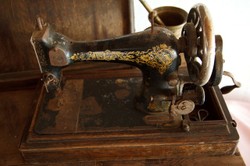

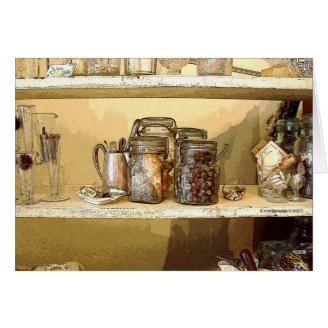

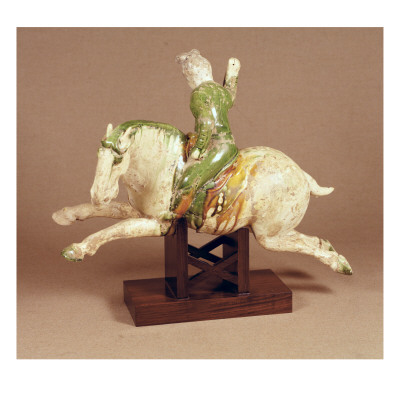
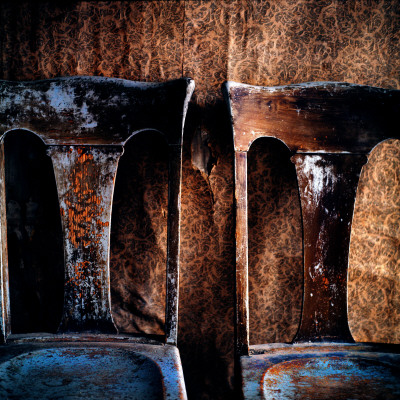
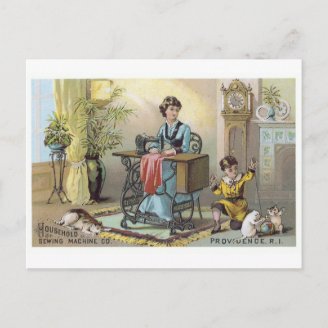

 Bicycling For Exerciseon 06/06/2012
Bicycling For Exerciseon 06/06/2012
 Orange Disheson 03/19/2012
Orange Disheson 03/19/2012
 Cobalt Disheson 03/15/2012
Cobalt Disheson 03/15/2012
 Elephant Baby Showeron 03/11/2012
Elephant Baby Showeron 03/11/2012


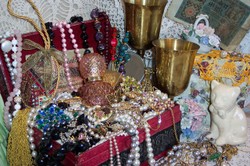
Has this helped you a lttle in knowing the art of buying antiques? Thank you for stopping by today and please do feel free to leave me a comment.
Helpful advice. I love to go antiquing.
I, also, did not know of the word, provenance. Thanks for the lesson. I so appreciate having the benefit of your expertise from your side of the counter. Now I just need help knowing how to distinguish the honest seller from the one who is trying to trick me and take advantage of my inexperience.
There are so many places to pick up antiques in London - I have the utmost difficulty stopping myself from amassing even more bits and pieces. I just love them, and your article is great, with very sensible advice.
I always think it helps to treat everyone with respect whether it is some one behind an antique counter or the kid next door. I have think this page helps people learn the art of buying antiques. I know it helped me.
I used to collect lots of antiques for our Victorian home - these days, with 2 kids and 4 cats, it's usually a trip to Ikea!
One day, I'll start again. Your advice is excellent!
Here, Here! Excellent advice, suggestions and an overall look at the Antique buying/selling industry from both sides of the fence. Thanks for sharing your knowledge!
I love ephemera too, and love walking through antique shops as well as attending antique auctions. There is one I'd like to go to today, but may back down due to the heat. I admire you having a shop and dealing face to face with customers. Online selling is my venue, but I only sell small items that are easy to ship.
I used to go antique shopping with a good friend in Florida. We would travel all over and buy little things. She knew more about it than I did, but it was fun. I did not know the term "provenance" so I learned something today!